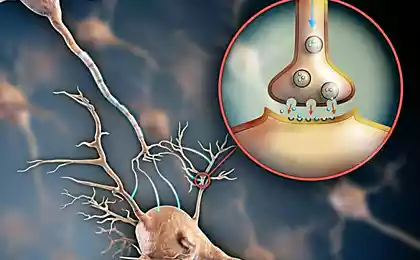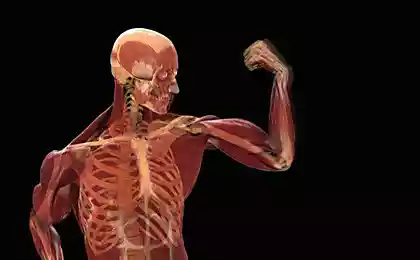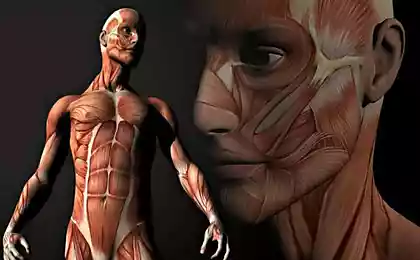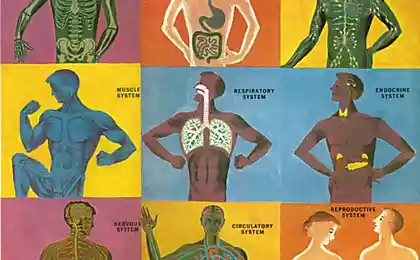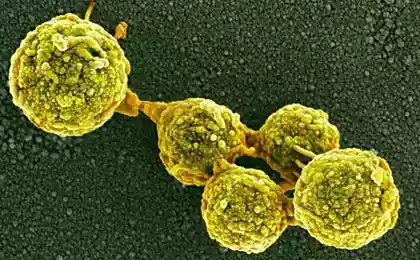535
15 facts about the human body
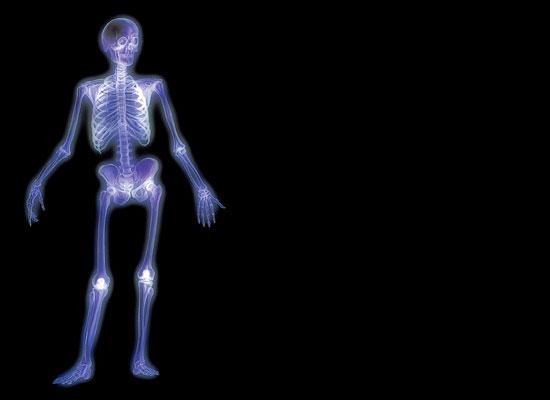
1. Your stomach produces a corrosive acid. Each of us has a liquid that no airline would not be allowed to take with you on board. But to make us part with it is impossible, because it is produced by our stomachs. The cells of the stomach produces hydrochloric acid. Yes, the same one that is used in metallurgy. It can damage the steel, but the mucosal surface of the stomach wall retains we live and work on the acid causes cleavage of the food. Human gastric juice containing 0, 4% hydrochloric acid (HCl).
2. The human brain generates a day more electrical impulses than all telephones of the world combined.
3. From the moment of birth in the human brain is already there are 14 billion cells, and the number is up to his death is not increased. Haprotiv, after 25 years, it is reduced to 100 thousand per day. One minute you spend reading the page, kills about 70 cells. After 40 years of brain degradation is accelerated sharply, and after 50 neurons (nerve cells) shrink and reduced brain volume.
4. In Mesopotamia for the death of a patient of the doctor who treated him executed, and for blindness - dazzled.
5. Nerve impulses in the human body are moved at a speed of about 90 meters per second.
6. Almost half of all human bones are located in wrists and feet.
7. hit his head against the wall, you can save 150 calories per hour.
8. In the body of an adult of about 75 kilometers of nerves.
9. Every two weeks, the stomach needs a new layer of mucus, or it will begin to digest themselves.
10. The bones are depleted, helping to maintain a balance of minerals. Our bones apart from the obvious support of the work on the ground of all the organs and muscles and perform more difficult task of regulating calcium levels. Bones contain phosphorus and calcium. A calcium, in turn, not least the needs of muscles and nerves. If you will be missed, special hormones will cause bones to "share" of calcium with other parts of the body.
11. Thousands of eggs are used. Upon reaching the age of a woman about 50 years, the monthly menstrual cycle, which controls hormone levels and cooking the egg to fertilize, fizzles. The ovaries produce less estrogen, causing physical and emotional changes. On average, a woman for life produced 34,000 eggs, of which only about 350 reach maturity (on average, about one per month).
12. Cilia output mucus. Most of the cells of our body are hair-like organelles called cilia (or flagella). They play an important role in many bodily functions from digestion to hearing. But the cilia in the nose help to carry out the mucus from the nasal cavity to the throat. Cold weather slows this process, which may lead to the accumulation of mucus in the nasal cavity. And runny nose.
13. Your skin is a four. Any skin without pigmentation is white. Subcutaneous vessels add a bit of redness. Yellow pigment added group. A sepia melanin is created in response to exposure to ultraviolet radiation, up to the black in the case of excessive development.
These four colors in various proportions and create different color people in the world.
14. more brains - less teeth. Evolution is not perfect. If it were such, then perhaps we would have wings instead of wisdom teeth. Sometimes useless functions remain in the body because no harm. But wisdom teeth were not always a way to help the financially dentists. Once upon a time they were the third set of molars for chewing meat. But with the growth of the brain structure of the jaw has changed, leaving us as a result of multiple teeth are absolutely useless.
15. The human body is longer in the morning, so we have higher than in the evening. This is due to the fact that during sleep in a horizontal position, the intervertebral discs are saturated with fresh fluid and relaxes the back muscles. Therefore, in the morning you a centimeter and a half higher than in the evening. During the day the wheels again compressed, the fluid is gradually coming out of them, and our growth decreases again ... until the next morning.

A selection was: Lori Destroy
via factroom.ru
There is evidence that in the 19th century. in England, there was a man with a second person on the nape
Ants yawn when awake




